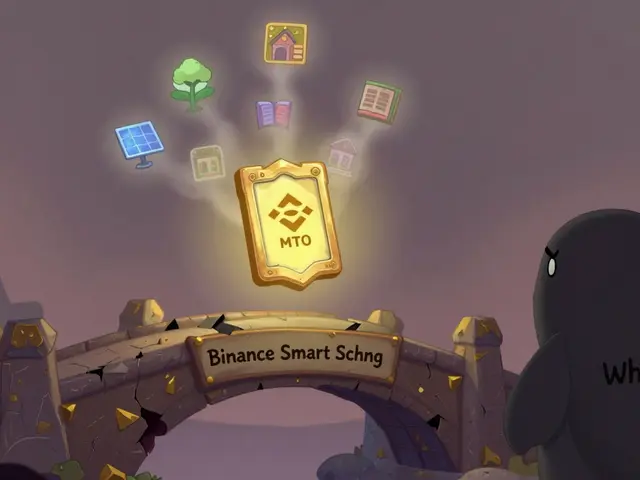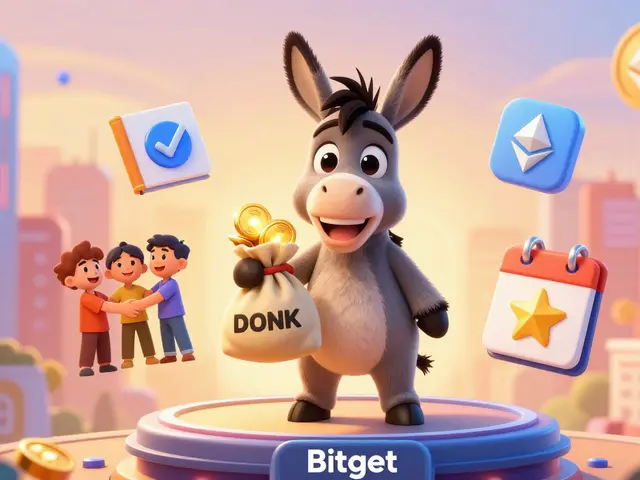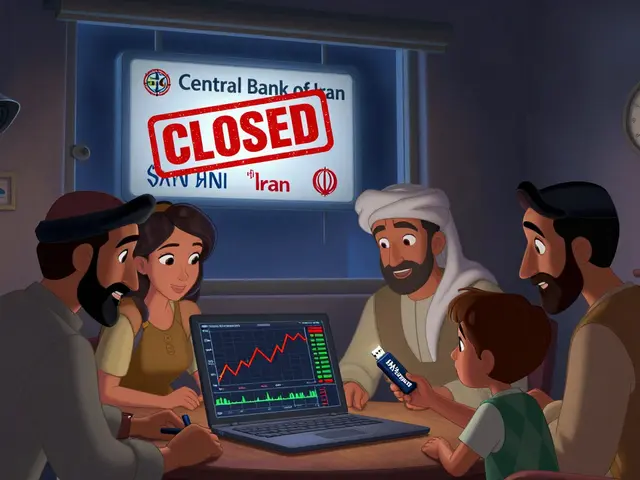Bangladesh hit a record $30 billion in remittances in 2025, but crypto remains banned. Learn how mobile apps like bKash are replacing informal systems - and why the central bank refuses to allow Bitcoin or Ethereum.
Cryptocurrency Illegal in Bangladesh: What You Need to Know
When it comes to cryptocurrency, digital money that operates without a central bank or government control. Also known as digital currency, it enables peer-to-peer transactions using blockchain technology. In Bangladesh, owning, trading, or using crypto is officially banned. The central bank, Bangladesh Bank, declared in 2015 that cryptocurrencies like Bitcoin and Ethereum are not legal tender and cannot be used for payments or investments. This isn’t just a warning—it’s a full legal prohibition.
Why? The government fears loss of control over the financial system. Without banks or regulators overseeing transactions, money can move anonymously. That makes it easy for money laundering, tax evasion, and fraud. In a country where many people still rely on cash and informal lending, the idea of untraceable digital money felt dangerous. Even though blockchain is transparent by design, the anonymity of wallets made officials nervous. The ban wasn’t about the tech—it was about losing oversight. Since then, any bank or financial institution caught facilitating crypto transactions faces heavy fines or shutdowns. But here’s the twist: the ban hasn’t stopped people from using crypto. Thousands still trade on peer-to-peer platforms like LocalBitcoins and Paxful. They use cash deposits, mobile banking apps, and even friends to swap taka for Bitcoin. It’s risky, but it’s happening.
The Bangladesh crypto ban, a strict government policy prohibiting all forms of digital currency use. Also known as crypto prohibition, it applies to everyone—individuals, businesses, and exchanges operating inside the country. There’s no gray area in the law. If you’re caught buying Bitcoin with your mobile wallet, you could face legal trouble. Police have raided homes and arrested people for running crypto-related businesses. But enforcement is patchy. Most cases only come up when someone reports a scam or a debt dispute involving crypto. If you’re just holding Bitcoin and not trading publicly, you’re unlikely to get caught. That’s why crypto use persists underground.
The digital currency ban, a nationwide restriction on the use of decentralized money. Also known as crypto prohibition, it reflects a broader global trend where some nations fear decentralization more than they value innovation. Countries like China and Egypt have similar bans, but Bangladesh stands out because it’s one of the few places where even holding crypto is treated as a legal risk. Most other countries at least allow ownership—you just can’t use it to pay for coffee. Here, even keeping Bitcoin in your wallet could be seen as breaking the law.
What’s next? There’s no sign the ban is lifting. The government hasn’t shown interest in regulating crypto—it wants it gone. But with high inflation and a weak local currency, many Bangladeshis see crypto as a way to protect savings. That tension won’t disappear. You’ll find more people using crypto in secret, more scams targeting those who don’t know the risks, and more stories of people losing money because they trusted the wrong person. The ban didn’t kill crypto. It just drove it underground.
Below, you’ll find real cases, breakdowns of past enforcement actions, and how people are still getting access to crypto despite the ban. No fluff. Just facts, risks, and what you need to know if you’re in Bangladesh—or thinking about sending crypto there.
 19
Nov
19
Nov




